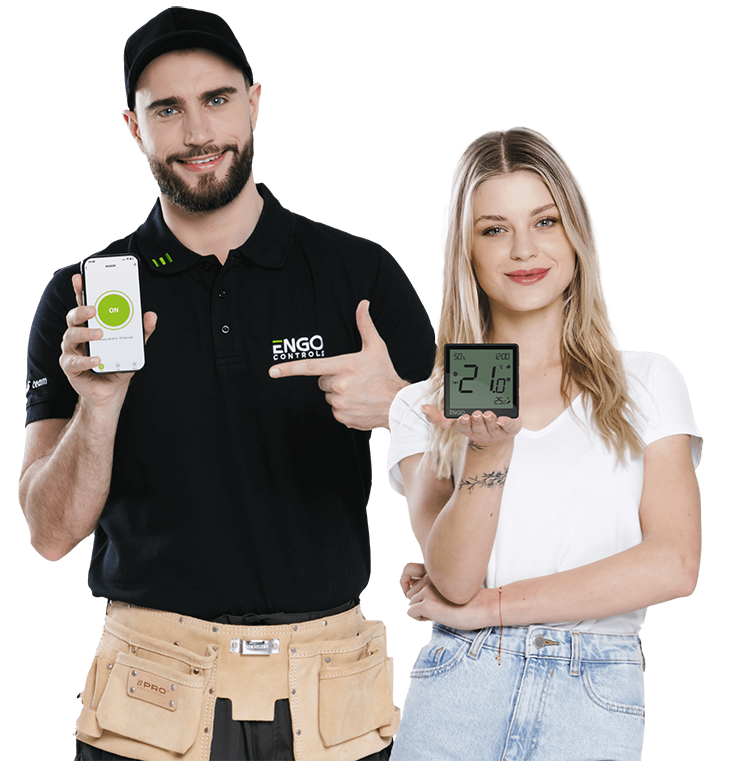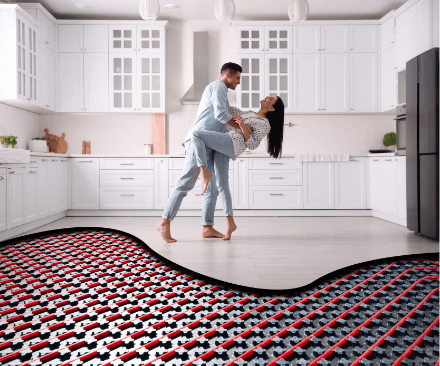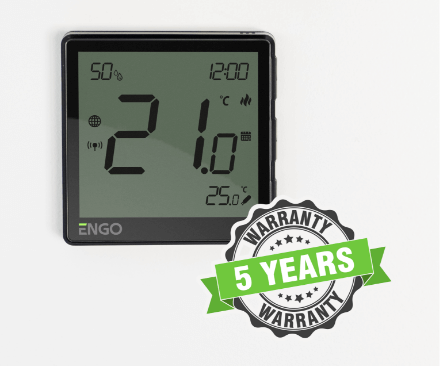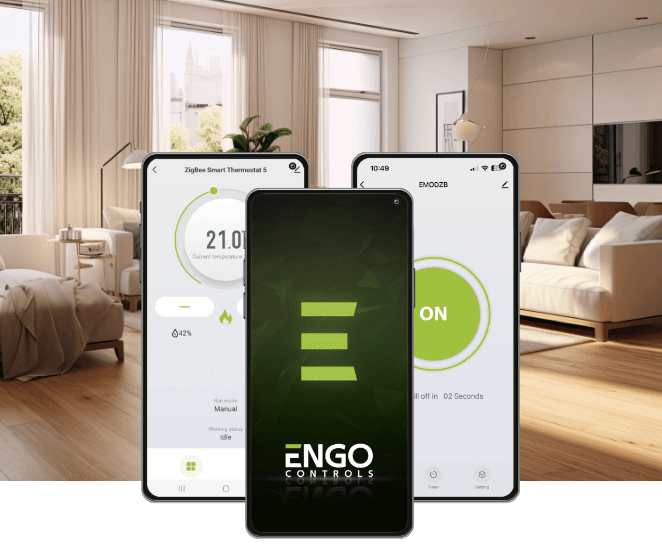
The right temperature in your home gives you comfort, savings and security. With us you have it... just like that. Warm up with ENGO Controls.
Our automation is easy to install and use. It will take care of the temperature, it will harmonize with your home. You will choose the control: wired, wireless, online. You will match devices to any type of boiler and other heat sources.
FOR YOU if you are focused on energy savings and daily comfort. Do you like control? With ENGO Controls you keep your household expenses in check. living fast or slow? We give you products that keep up with your pace.

Temperature control reduces heating energy consumption. You lower your heating bills and reduce the poisoning of the air you breathe.
Just like that.

Setting an individual temperature for each room will bring you comfort and better use of the interior without overheating or overcooling. You will enjoy coming home.
Just like that.

Free programming and system support throughout the use of our equipment is the best security for you, we are always on call.
Just like that.

You make a risk-free decision. We offer you up to 5 years of product warranty at no extra charge. We always have your best interest in mind.
Just like that.

We offer controllers with traditional functions, but our brand is mainly a paradise for lovers of new technologies. We are opening up to the TUYA platform. The ENGO Smart mobile application allows you to build a home control system from equipment from different manufacturers. SIMPLY operate your smart home.
Explore ENGO Smart